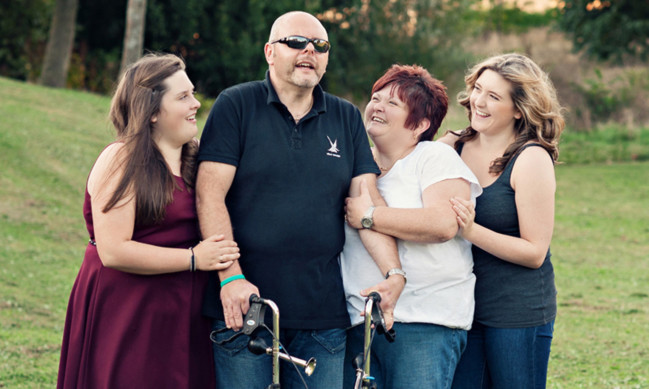An Angus man suffering from a rare fatal disease has blasted the country’s health secretary for refusing to meet him.
Arbroath man Keith Swankie has called for a face-to-face meeting with Alex Neil MSP to confront him over what he sees is a lack of awareness and support for people suffering from Progressive Supranuclear Palsy (PSP).
The condition slowly reduces a sufferer’s mobility, speech and general levels of health and has a life expectancy of around eight years following diagnosis.
Mr Swankie has been campaigning to raise awareness of PSP since his diagnosis two years ago and has now taken his fight to the doors of Parliament.
The issue was first raised by West Scotland Conservative MSP Jackson Carlaw at the end of January, who asked the Government what training the NHS provides on the diagnosis of the condition.
Alex Neil responded by saying individual NHS boards are responsible for planning and funding their own services, but Mr Swankie described that as a “woolly, non-substantial reply”.
He has been canvassing Mr Neil for a meeting via Twitter to no avail and The Courier asked the Scottish Government directly if the Cabinet Secretary for health and wellbeing would meet Mr Swankie.
A spokeswoman for the Government refused to answer the question head on but said it takes the matter of PSP “very seriously.”
“The Scottish Government takes the concerns of Mr Swankie and other people living with progressive supranuclear palsy (PSP) very seriously,” she said.
“The minister for public health recently met with Scotland’s specialist care advisor from the PSP Association where they discussed, among other things, the training they plan to carry out within health boards.
“As a result of this meeting we put them in touch with the National Neurological Advisory Group (NNAG) so they can raise awareness of the work they do within the medical profession.”
Father-of-two Mr Swankie said the Government seemed to be more interested in the referendum than his campaign.
“I still feel that they are not taking the subject seriously in comparison to NHS England,” said Keith.
